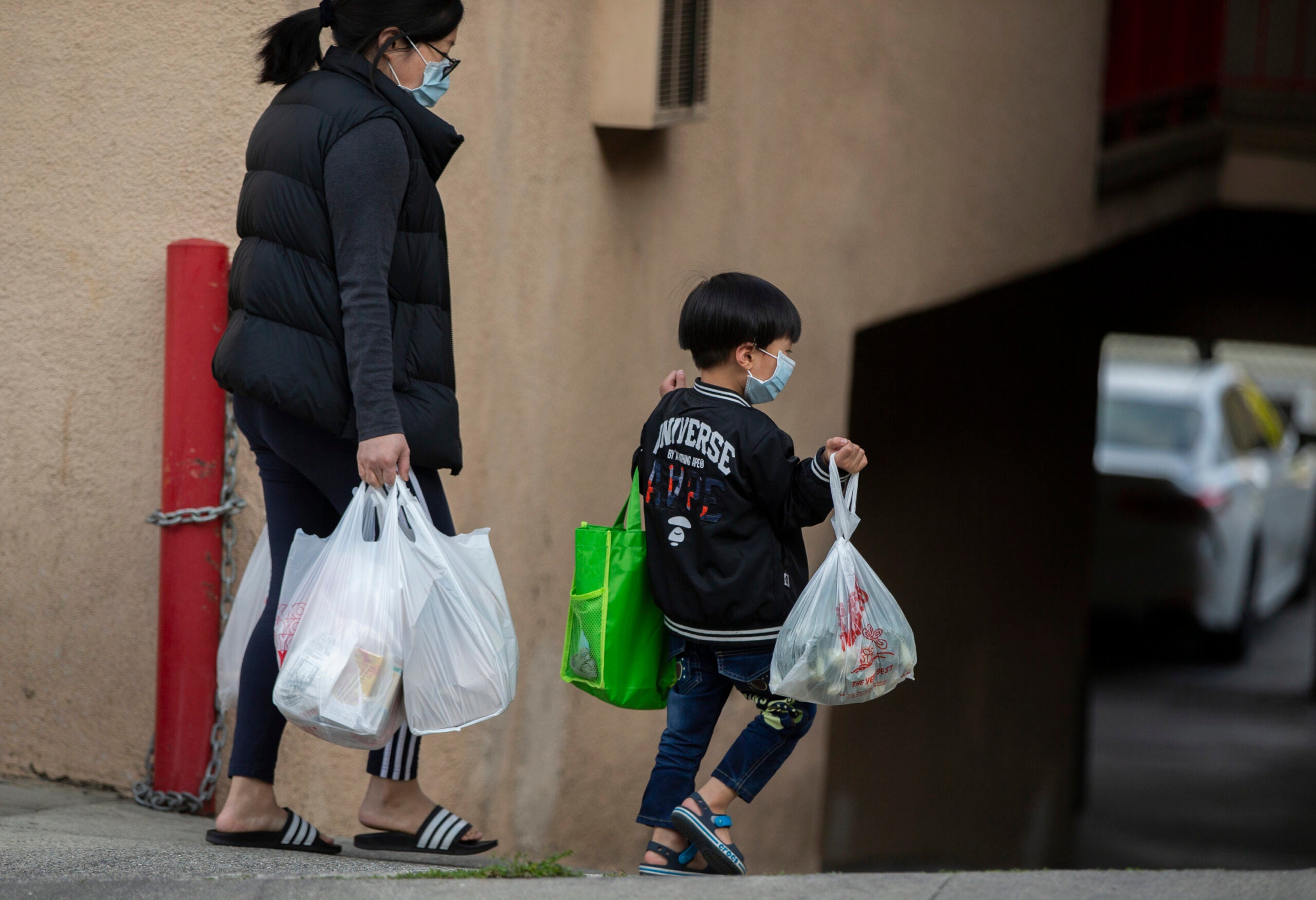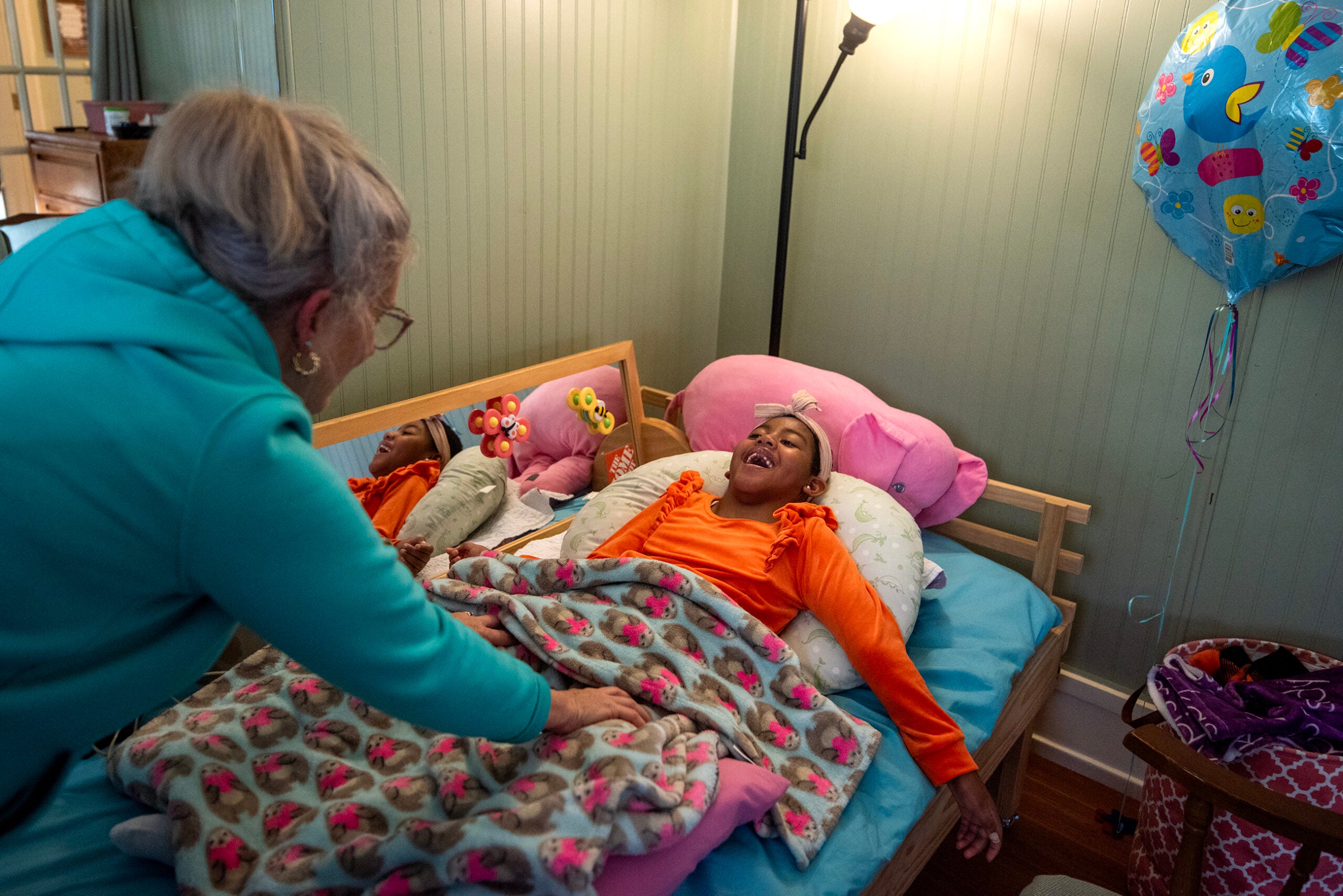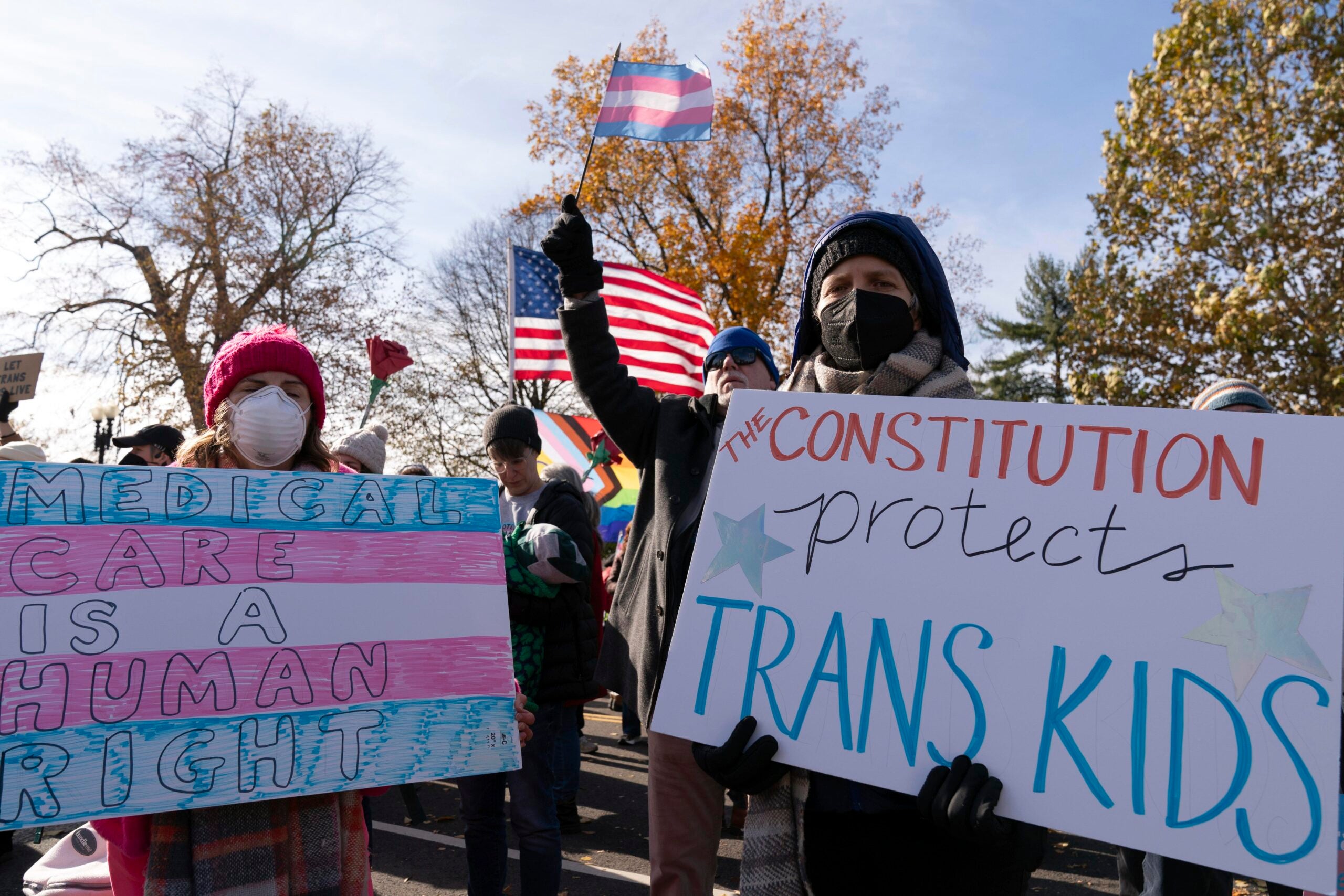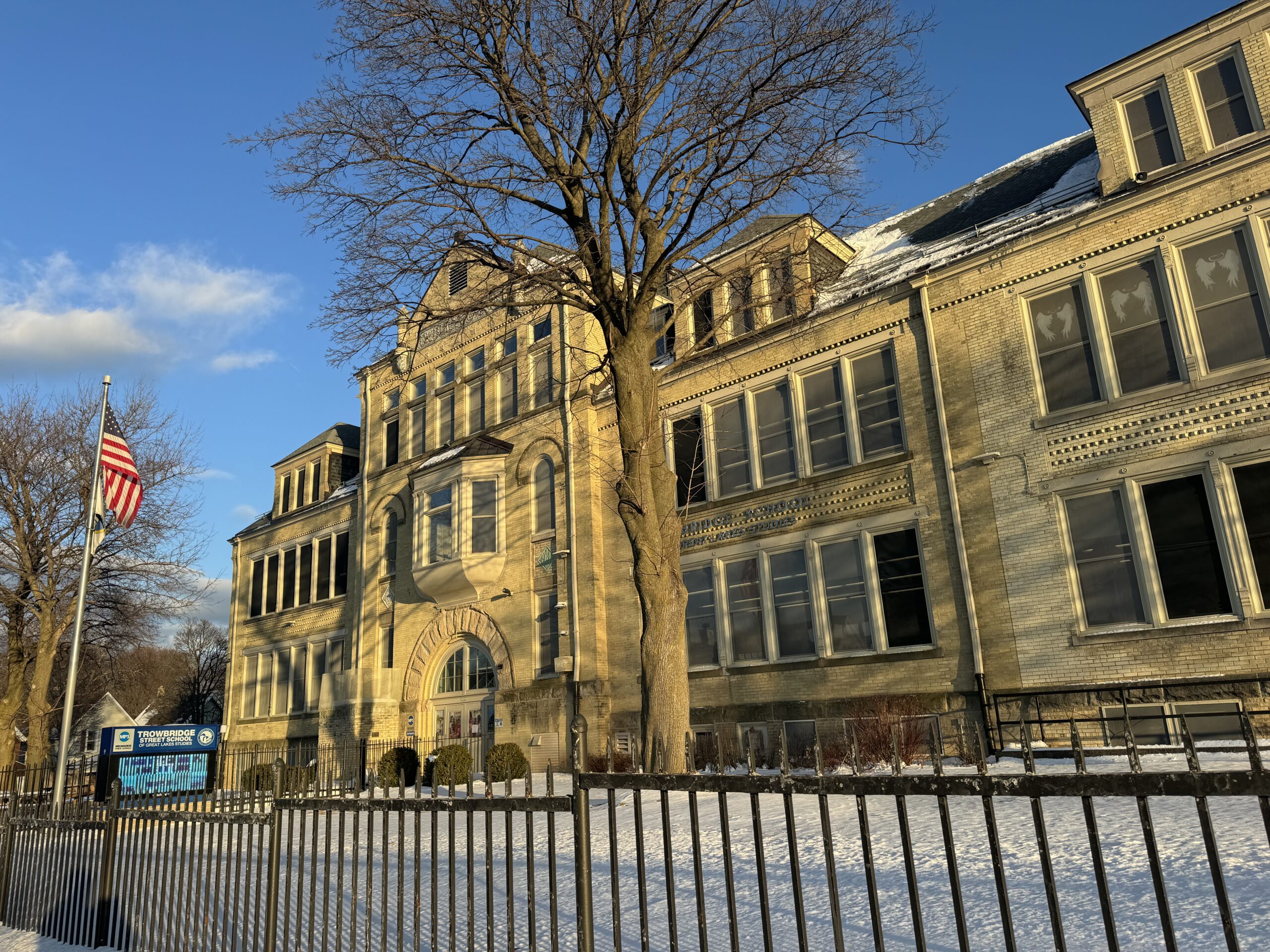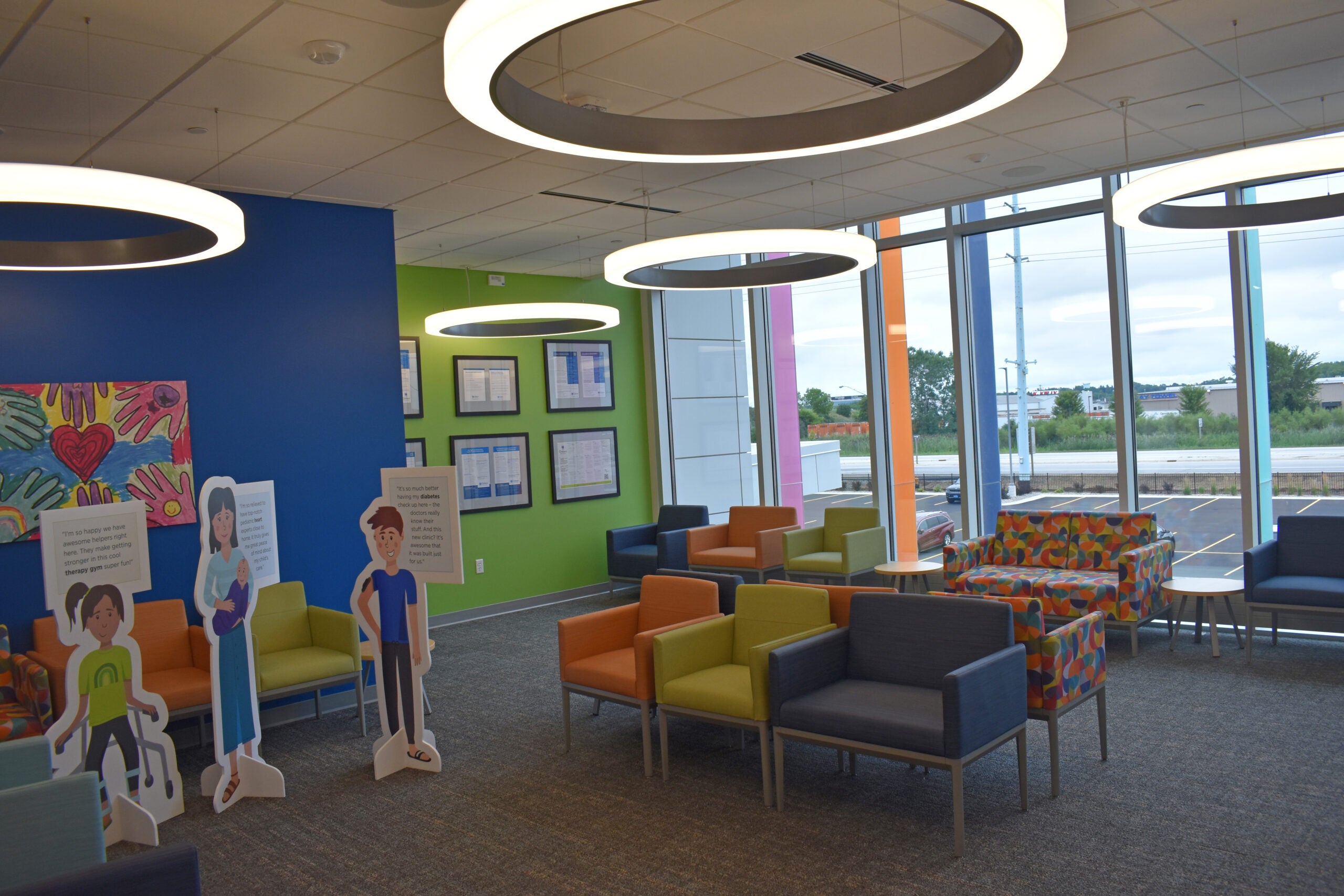Many families are under significantly more stress these days because of the ongoing COVID-19 pandemic.
Some solo caretakers, especially grandparents or those who are immunocompromised, are worried about what happens if they get sick. Other parents are struggling to balance child care with working from home, or trying to find someone to watch their children while they’re continuing to leave the house for work.
This has been an adjustment for families, but also for the organizations that try to help them. Wisconsin’s family resource centers — organizations that offer parenting classes, support groups, diaper banks and other services geared toward preventing child abuse and neglect — are also adapting.
News with a little more humanity
WPR’s “Wisconsin Today” newsletter keeps you connected to the state you love without feeling overwhelmed. No paywall. No agenda. No corporate filter.
“When a parent gets stressed, they’re more likely to not handle behavior problems or everyday stressors in the same way,” said Marilyn Huckenpoehler, parent education supervisor at The Parenting Place in La Crosse. “Now, more than ever, they need that safe space where they can talk about their frustrations.”
Her organization has been moving a lot of its programming online, as well as dropping off art kits, snacks and packets of information about child development at the homes of some of its clients.
They’re also continuing to run their diaper bank, albeit with social distancing restrictions put in. Now, families call ahead and let The Parenting Place know what size diaper they need, staff members set it out for them and the families swing by to pick it up. Huckenpoehler said they’ve stuck pretty close to their pre-pandemic average of diaper bank customers, with 92 parents coming by for diapers over the past eight weeks.
However, it’s not just that parents are more stressed and that’s sapping their patience with children. Rebecca Murray, of the state Child Abuse and Neglect Prevention Board, said their children may be acting differently.
“It’s the first time they may be seeing challenging behavior in their children because their kids aren’t in their normal routine,” she said.
Children and guardians who take care of them are also dealing with a lot of uncertainty. Schools are closed through the end of the year and the options for summer school, camps and other activities that usually get young people out of the house and around others are still up in the air.
Erin Morey, director of operations at the Prevention Services Network (PSN) Family Resource Center in Kenosha County, said her organization has gotten fewer referrals of families in need of their services — even though she said the need is likely just as high, if not higher, than it was before Wisconsin’s “Safer at Home” order began.
Families in Kenosha County who are screened out by Child Protective Services (CPS) after someone makes a report are referred to the PSN Family Resource Center, but the number of reports to CPS have dropped substantially as children aren’t seeing as many adults outside their families.
For those they are serving, the PSN Family Resource Center has been moving to virtual one-on-one check-ins and online parenting classes. They’ve also been pushing out more information on social media to try to reach families who are struggling, but don’t know where to find help.
“We’ve been doing a ton of Facebook videos as a way to engage families,” she said. “Reading a book or walking through certain resources, where food pantries are open — things like that.”
Next week, they’re also opening up a virtual cafe where parents can drop in and chat with other parents — both as a way to stay connected to other adults, and to be able to talk through frustrations and joys they’ve been experiencing.
“That’ll be a huge thing, just to be able to maybe air some grievances or get some advice or just have an adult conversation in the middle of the day,” she said.
The Parenting Network, a family resource center in Milwaukee, has also moved some of its services to Zoom videoconferencing. After receiving a COVID-19 impact grant from Bader Philanthropies, Inc., the center was able to buy Chromebooks and prepaid phones that can be used as hotspots so families without internet access or devices could join their virtual parent education classes and support groups.
The Parenting Network director Joyce Felker said the online groups have been so popular that they’re planning to keep them going when social distancing is no longer necessary. She’s worried, though, that after disease concerns die down, people might think families’ stress is also on the wane.
“I would be concerned that we don’t just assume, because we’re opened up again and people can get out, that the impact to their income went away,” she said.
She’s also worried about the higher prevalence of domestic violence, which can have lasting impacts on children who observe it or fall prey to it themselves.
Family and Childcare Resources of Northeast Wisconsin saw a drop in the number of families referred to them for services at the beginning of the stay-at-home order, said director Paula Breese, but those numbers are starting to stabilize. Before the pandemic, most of their referrals came from hospitals and schools. Now, more people are finding the organization via Facebook and social media, and are reaching out for help.
In addition to other services, the organization helps connect parents to regulated child care facilities that meet their needs. Breese said about 46 percent of the facilities in their area are closed, which isn’t a big problem now as more parents staying home means the demand for child care spots is also down. But Breese is worried about what happens as the state starts to open back up.
“We had a child care crisis before all this started and didn’t have enough slots for the parents looking for care,” she said. “Now, it’s even more imperative for us to make sure that these child care programs have the resources to open again.”
All of the organizations are grappling with the uncertainty of how long families in Wisconsin will be dealing with pandemic restrictions and what that will mean for their economic stability and their children’s well-being.
Felker, with the Milwaukee-based Parenting Network, said there is one possible upside.
“If there’s one good thing, maybe a silver lining, that comes out of this, it’s truly believing we are all in this together,” she said, “and that reaching out and saying, ‘I need some support, I need something’ is now normalized.”
Those looking for a family resource center nearby, the Child Abuse and Neglect Prevention Board has an interactive map on its website, including phone numbers and location information.
Wisconsin Public Radio, © Copyright 2025, Board of Regents of the University of Wisconsin System and Wisconsin Educational Communications Board.

